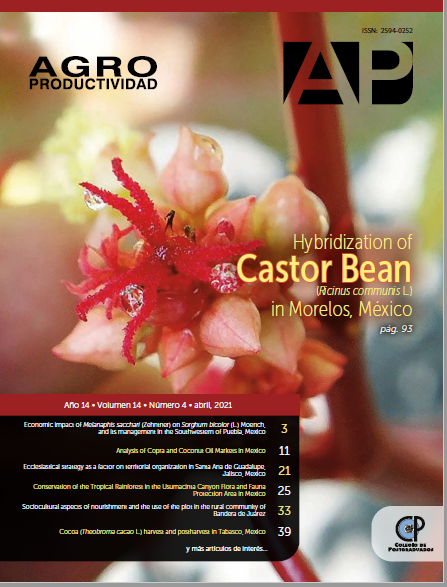Economic Impact and Feasibility of Striped Catfish Farming (Pangasius hypophthalmus) in Mexico
##plugins.themes.bootstrap3.article.main##
Keywords
aquaculture; Mexican tropic, employment
Resumen
Objective: To assess the productive behavior of Pangasius hypophthalmus in actual rural aquaculture farming conditions for the state of Veracruz, Mexico.
Methodology: The study had a duration of 331 days in a circular pond of 135 m3, with no aeration. 2000 juveniles were bred upon attaining 7.9 g; they were fed once a day, four days a week. Their weight and length were assessed every 15 days.
Results: The growth of P. hypophthalmus reached 900 g in 150 days at temperatures between 26 y 34 °C, with growths of 100 g in 150 days at temperatures between 22 and 26 °C. An average final weight of 1254 kg and a survival of 87.8% were attained for a total production of 2.2 t. These organisms may attain 2 kg per year at 26 to 35 °C-1.
Study limitations: For a period of 153 days, water temperatures greater than 26°C limited the growth of this fish.
Conclusions: The Pangasius hypophthalmus species represents an aquaculture alternative with high potential for tropical areas of Mexico, mainly where electric power availability is limited.

